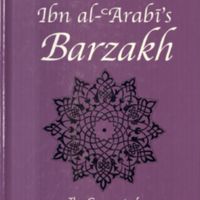Ibn al-ʻArabī's Barzakh: The Concept of the Limit and the Relationship Between God and the World
Dublin Core
Title
Ibn al-ʻArabī's Barzakh: The Concept of the Limit and the Relationship Between God and the World
Subject
Ibn al-ʻArabī, 1165-1240
Creation (Islam)
Intermediate state -- Islam
Creation (Islam)
Intermediate state -- Islam
Description
"This book explores how Ibn al-Arabi (1165-1240) used the concept of barzakh (the limit) to deal with the philosophical problem of the relationship between God and the world, a major concept disputed in ancient and medieval Islamic thought. The term "barzakh" indicates the activity or actor that differentiates between things and that, paradoxically, then provides the context of their unity. Author Salman H. Bashier looks at early thinkers and shows how the synthetic solutions they developed provided the groundwork for Ibn al-Arabi's unique concept of barzakh. Bashier discusses Ibn al-Arabi's development of the concept of barzakh ontologically through the notion of the Third Thing and epistemologically through the notion of the Perfect Man, and compares Ibn al-Arabi's vision with Plato's."--Jacket.
Creator
Salman H. Bashier
Publisher
Albany : State University of New York Press
Table Of Contents
1. Ibn al-'Arabi's liminal (Barzakhi) theory of representation : an outlook from the present situation -- 2. Creation ex nihilo, criticism in time, and eternal creation : Ibn Sina versus the theologians -- 3. Ibn Rushd versus al-Ghazali on the eternity of the world -- 4. Mysticism versus philosophy : the encounter between Ibn al-Arabi and Ibn Rushd -- 5. The barzakh -- 6. The third entity : the supreme barzakh -- 7. The perfect man : epistemological aspect of the third thing -- 8. The limit situation.
Text Item Type Metadata
Original Format
Book
Citation
Salman H. Bashier, “Ibn al-ʻArabī's Barzakh: The Concept of the Limit and the Relationship Between God and the World,” Humanities Hub, accessed February 17, 2026, https://humanitieshub.sdsu.edu/omeka/items/show/1236.

